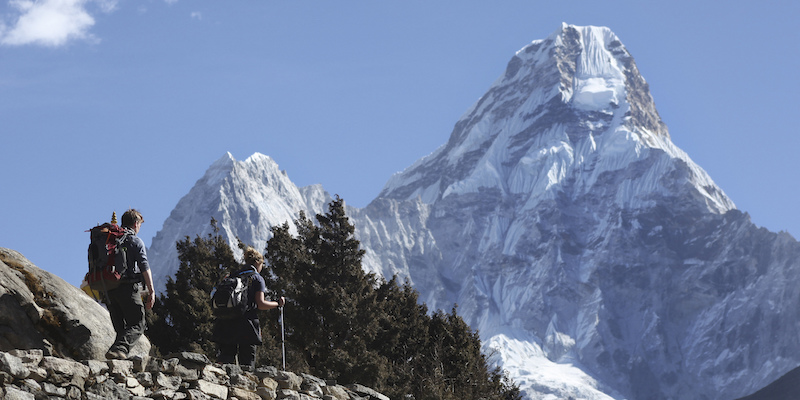Nepal has introduced new rules for its trekking routes, one of the country’s major tourist attractions: from April 1 it will no longer be possible to hike alone, but it will be necessary to rely on a registered guide or join a group that allows it a.
The decision was taken five years after the same ban which, however, concerned solo climbing. The goal is above all to increase the safety of hikers: according to government sources, every year there are about fifty hikers for whom it is necessary to activate long and costly search operations. However, the obligation to rely on an official guide should also have an economic impact, increasing income and creating jobs.
In Nepal there are eight of the highest mountains in the world, but also numerous regions known for trekking routes: the circuit on the slopes of Mount Annapurna and the trek that touches the Everest base camp are famous. The new regulation will be applied to all routes within the Trekkers’ Information Management System, an already active control system which provides for the issuance of a card by the Nepalese Tourist Board (NTB) following obtaining the excursion permit.
Many of the routes used by trekkers in Nepal are quite remote, away from population centers and roads that can be traveled by car. In the event of an emergency, it can take a few hours at best to reach hikers, but more often days. For this reason, according to the government, trekking must be practiced with official and registered guides: the new regulation also aims to solve the problem of unofficial guides, in some cases foreign, who are often present on Nepalese routes.
This kind of tourism is one of the main sources of revenue in the country and has experienced great growth in the last decade, only stopped by the pandemic. 2019 was the year of the highest tourist entries in Nepal, close to 1.2 million: of these 300,000 were hikers who made at least one trek. The number obviously collapsed due to coronavirus restrictions in the following two years, but returned to 550,000 tourists in 2022 and over 70,000 in February this year alone.
One of the problems, according to those in favor of the new measure, is precisely the increase in people who decide to go trekking. If in the past they were few and mostly very equipped and ready, today the Nepalese paths are more often traveled by tourists with little or no experience and insufficient equipment: the accompaniment by a professional guide would therefore be necessary.
Hikers near Everest Base Camp (AP Photo/Karin Laub)
However, the measure was also highly criticized by hikers’ associations and tour operators: on the one hand, it is underlined that independent trekking is often a “philosophical” choice and an experience voluntarily different from following a guide, on the other, it is highlighted how the new regulation significantly increases costs. According to the Nepalese Tourist Board, a guide can cost between $25 and $50 a day, with prices that can increase for longer excursions, while the cost of an excursion in a group can vary according to the type and length: the Annapurna circuit varies between 850 and 1100 dollars. The same cost of the authorization card has doubled and is now around $15.
According to some politicians and local observers, the measure is likely to discourage tourism and hiking in the area, which was once considered very cheap.
